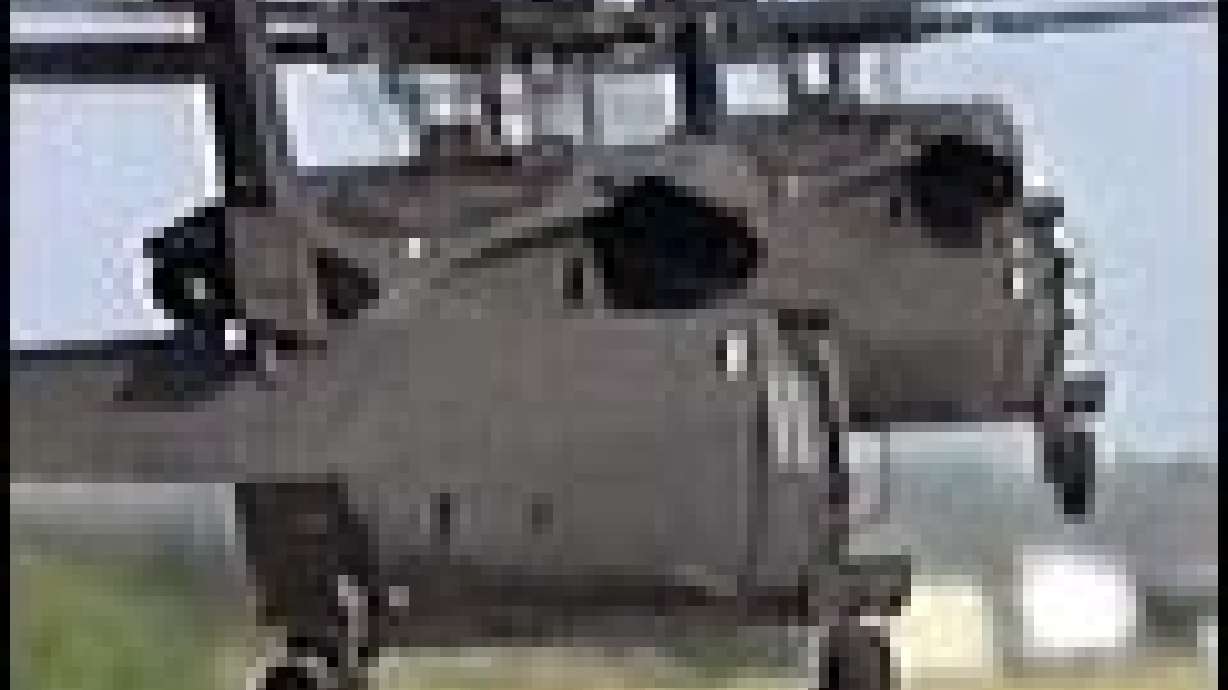Estimated read time: 3-4 minutes
This archived news story is available only for your personal, non-commercial use. Information in the story may be outdated or superseded by additional information. Reading or replaying the story in its archived form does not constitute a republication of the story.
BAGRAM, Afghanistan (AP) -- A new American commander took control Tuesday of U.S. and coalition forces in Afghanistan, vowing the United States and its allies would remain committed to achieving stability in this war-ravaged country.
But with rebels and al-Qaida fighters still launching hit-and- run attacks on coalition troops, Afghan soldiers and aid workers, Maj. Gen. John R. Vines said maintaining security would not be easy.
"Some 25 years ago, as Afghanistan was wracked by war, the world looked the other way. Your presence here today reflects a commitment not to repeat that mistake," the 53-year-old Vines said after taking over Lt. Gen. Dan K. McNeill.
"We're here because our governments have committed to helping Afghanistan establish itself as a peaceful, prosperous nation. The job will not be easy."
The handover ceremony took place on a runway lined with helicopters at Bagram Air Base, the headquarters of 11,500 coalition troops, 8,500 of them American, deployed in the country.
Senior Afghan commanders attended the ceremony, as did Afghan Foreign Minister Abdullah and diplomats including U.S. Ambassador Robert Finn.
U.S. military spokesman Col. Rodney Davis called Tuesday's change in leadership "routine." American commanders and soldiers in Afghanistan regularly serve tours-of-duty that don't exceed a year.
The hand-over coincides with a shift in combat ground forces. About 4,000 troops from the U.S. Army 10th Mountain Division, based at Fort Drum, N.Y., are replacing an equivalent number of soldiers from the U.S. Army 82nd Airborne Division, based at Fort Bragg, N.C., Davis said.
Both divisions fall under the umbrella of the 18th Airborne Corps, which McNeill still heads. Vines is due to take over command of the 18th Airborne this summer, McNeill said.
Vines has been in Afghanistan for nine months. As commander of the 82nd Airborne Division, he was responsible for tactical combat missions.
Coalition troops have been in Afghanistan since Afghan ground troops, aided by a massive U.S. bombing campaign, ousted the former Taliban government in late 2001.
Afghan authorities say the Taliban and their allies have been regrouping in recent months, stepping up attacks not only on coalition forces and Afghan government forces, but also on aid workers.
Despite that, Vines said the capacity of Taliban and al-Qaida fighters to launch attacks was diminishing.
"They have much less capability than they did a year ago," Vines told The Associated Press in a brief interview after the ceremony. "Do they have the capability to inflict casualties on the government of Afghanistan, on its forces, on non-governmental organizations? Yes they do, in limited areas."
He said the reason aid workers had been attacked repeatedly in recent weeks was because they were "getting out more" -- implementing humanitarian projects in new places as security countrywide increases.
"At any given point in time ... criminals can gain the upper hand and it can happen here," Vines said. "We will be aggressive in attempting to deny them the opportunity to do that and when they do, we'll seek to capture or kill them."
Vines said coalition troop strength would remain the same for the foreseeable future and the overall nature operations would not change.
McNeill said coalition forces were starting to shift their focus toward humanitarian activities.
"You will see a slight change which has begun over the last few weeks in that (the coalition) begins to focus a little more on what we call stability operations," said McNeill, who is due to leave soon after spending a year in the country. "You"ll see a greater emphasis on reconstruction."
McNeill said a slight reduction of coalition forces could occur in mid-2004, after the primary corps -- about 9,000 men -- of the U.S.- and French-trained Afghan army is formed.
U.S. officials hope the new army, which is expected to grow to 70,000 men, will eventually replace irregular Afghan militias who are loyal to powerful regional warlords.
Vines said Afghans would eventually have to take charge of their own security.
"We realize that ultimately this is an Afghan problem and it can only be solved by Afghans," Vines said. "The more rapidly we transition to that, the better off all of us will be."
(Copyright 2003 by The Associated Press. All Rights Reserved.)









